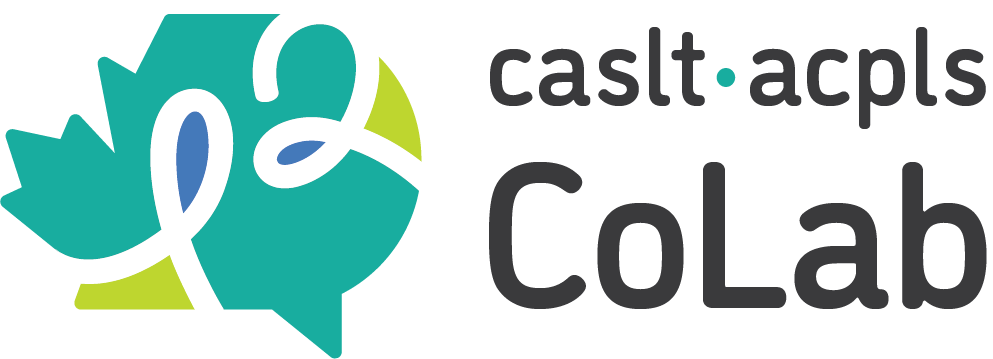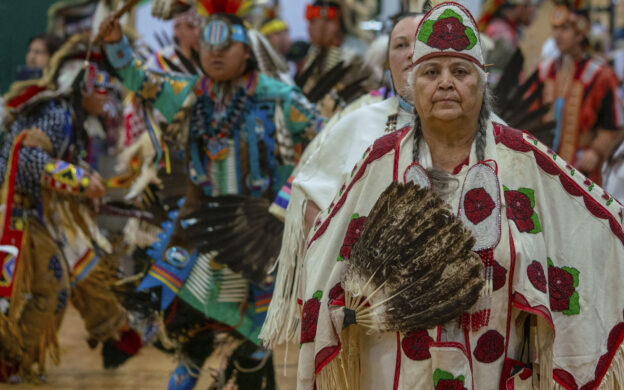About the Course
She:kon, aaniin, tanisi/tawâw, tanishi, welcome in the languages of the Haudenosaunee, Anishinaabe, Cree and Métis peoples.
This course is part of the Journey of Transformation series. With a lens on the wisdom and worldviews of Indigenous peoples, this course will set participants on the pathway of the ganigohi:yo, “good mind” (Onkwehon:we). According to the Haudenosaunee peoples, a good mind is inherent to being a good human being. Their worldview invites exploration of the ways of being and knowing of Anishinaabe, Onkwehon:we, Nehiyaw, and Métis peoples, which are presented in this course.
Due to time constraints, the course will not cover the worldviews of all Indigenous peoples. However, it will empower participants to explore and seek answers within the protocols of local peoples.
Diana Steinhauer, Nehiyaw/Cree from Onihcikiskwapiwin in Treaty No. 6 Territory, is an educator with 40 years of experience in teaching, curriculum development, and administration in First Nations-owned K–12 schools and post-secondary institutions. Most importantly, she is a mother and the first teacher of her children and grandchildren. Diana completed her doctorate in iyiniw pimātisiwin kiskeyitamowin (Indigenous Peoples Knowledge) at the University nuhelot’įne thaiyots’į nistameyimâkanak Blue Quills. She is particularly grateful to Elders and Knowledge Keepers who have guided and mentored her in the ancestral knowledge and ways of being as a kise iskwew.
Recognizing the value and work of iyiniw pimātisiwin (“the original peoples’ way of life”), Diana’s work as an agent of change in language, education, and governance is grounded upon her late father’s adage, pimātisîtotetân kimiyikowisiwininaw (“Let us live life the way our Creator intended for us to live”).
Learning Outcomes
Participants will:
- Gain insight into the Treaty relationship between Indigenous peoples and the British Crown, which allowed the Canadian state to be formed on Indigenous peoples’ lands.
- Develop an appreciation and understanding of the circular, interdependent web of life that is the common wisdom of Indigenous peoples across Turtle Island.
- Understand how Indigenous ways of knowing and being are embedded and represented within Indigenous languages and lands.
- Gain a deeper understanding of why decolonization is necessary for Indigenous peoples to reclaim and pursue the resurgence of their worldviews.
- Remain mindful of the perspectives conveyed through the materials, texts, and resources in their classrooms.
- Be able to share research-informed knowledge with their communities of practice framed by ethical space and with a view to reconciliation.
Discussion Forum
Why Include a Discussion Forum in This Course?
The discussion forum serves several important purposes. It is a platform for discussion, reflection, and debate among participants, mirroring the dynamics of an in-person class discussion. It is also a means for learning about one another, fostering connections, and developing an authentic Professional Learning Community. Participating in the discussion forums can yield valuable insight, particularly if your ideas and beliefs are respectfully challenged.
What Does Participation in the Discussion Forums Involve?
Participation involves thoughtful engagement. It does not mean overwhelming your instructor and classmates with observations, questions, and reflections. It’s important to choose what to share and what to keep to yourself. Participation requires a careful balance between listening to, acknowledging, and encouraging others while respecting a participant’s choice to be silent.
Since long posts are difficult to read online, discussion posts are limited to 200 words. A word counter is embedded in the discussion forums to help you keep posts brief. Generally, focus on making one main point per post, supported by evidence from the course readings, resources, and/or examples.
While you should try to read all posts in the forums, you might find yourself skimming some discussion threads and deciding not to respond to them. Nonetheless, you are encouraged to:
- Participate in the thread you started.
- Respond to at least one thread you did not start.
To optimize meaningful discourse, you should post early. Posting on the last night of a module is unlikely to generate discussion, as your colleagues will have moved on to the next topic in the course.
Engage with an open mind and interact respectfully with others. Your words can have a profound impact on your colleagues. Choose words that invite interaction, authenticity, and growth.
When sharing your professional and personal experiences, use pseudonyms to preserve the identity of individuals and anonymize specific locations.
If a forum post upsets you, wait a day before responding. You should assume that your colleagues and the instructor have good intentions and did not mean to upset you. If you feel there are unresolved issues, please contact your instructor.
What Is a Reasonable Amount of Time to Spend in the Discussion Forums?
Some of you may be online three or four times per week, whereas others will be online more frequently but for shorter durations. Please do what works best for you and your schedule.
Participation Checklist
- I contributed early to the discussion forum.
- I connected my contributions to the course readings by referencing specific readings in my initial post.
- I contributed to the discussion forum by responding to other participants’ posts throughout the course.
- My contributions reflect a growing understanding of the readings related to the discussion forum topics.
- My contributions draw upon my previous or current life/work experiences, exemplifying concepts in the course material.
- My contributions are respectful, self-reflective, curious, and/or creative.
- I am willing to risk being wrong and work to clarify any misunderstandings.
- I am committed to building an online learning community with my peers.
Course Content
About Instructor



